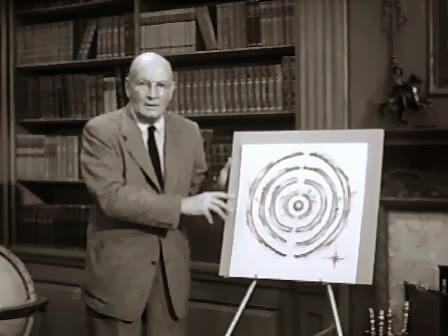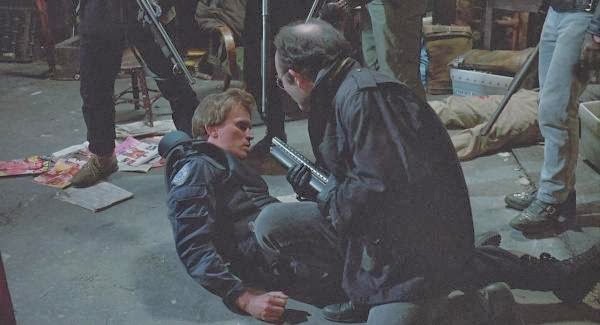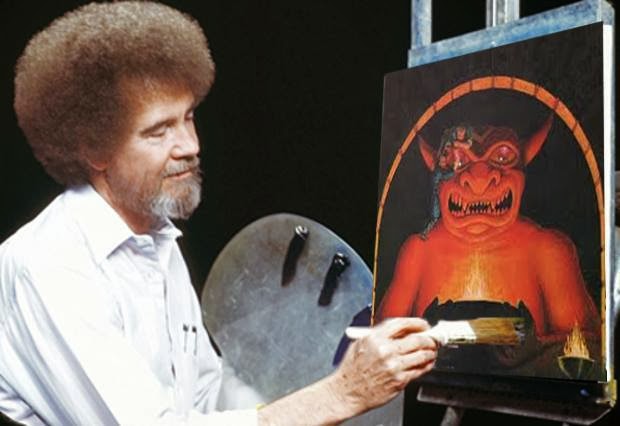As you probably noticed, there was no ranty blog last week. All the publicity stuff for Ex-Purgatory ate up a ton of my time. And this week is fallout from that plus a bunch of dental issues I won’t bore (or horrify) you with.
Thankfully, Thom offered to dive in and make some helpful tips for editors, and for writers who might be suffering from poor editor-ship.
And maybe next week I’ll be back on the ball and we can talk about Robocop or something…
—————————
I’m still not Peter Clines, and even though it is something of a crippling disability, I will strive to fulfill your sense of… of… I don’t know, whatever it is you’re looking for when you stop by this here blog. My name, if you’re the type what needs one, is Thom Brannan. (O hai, Thom.) I’ve appeared in this blog a couple of times, filling space when Pete was super-busy with his writerly duties. If you’re reading this, this is one of those times.
Usually, Pete tries to talk about the craft of writing, and the many, many pitfalls he’s seen as both a casual reader and as a judge for some hifalutin’ screenwriting business. One of the things he’s asked for is a continuance of this tradition, but this blog will be a little different. If you’re reading this, Pete wasn’t only busy, but has allowed it.
I’m talking to the readers today. Not your everyday, run of the mill readers, but participants in writer’s circles and beta readers instead. If you take time out of your busy, busy schedule to read for content and
to provide meaningful critiques, I’m talking to you. If you’re receiving these critiques, I might be talking to you, too.
During the course of these readings and critting, there are some phrases which make the rounds I wish to all that everybody, everywhere holds holy I could remove. They’re next to useless, and sometimes, downright insulting. If you use these phrases, but not in the way I’m about to mention, relax. Down, Simba. I’m not talking to you.
You may have to forgive me if I become… animated during the writing of this blog. These things tend to get my hackles up.
Show, Don’t Tell
If this is the limit of your advice for any bit of a critique, you’re doing it wrong. Please, readers, if you feel the urge to spout this piece of… advice, attach an example of what you mean. Or at the very least, be specific about what it is you wish to see and not be told.
For instance, if the writer has written “John felt nervous,” and your reply is SDT, throw your writer friend (or circle-mate) a bone and give some examples. Don’t you think if the author in question had thought of a way to show it, he or she would have?
It’s so bad that in my capacity as editor, I find myself cringing when I come to an instance where I want the author to show something. Somehow I power through, but always, always leave an example.
This Would Work If You Were Author X
Yes. This one kind of sets my blood aflame. That was in an early critique I’d gotten; I disremember the reason. It might have been opening with a dream sequence. But the least helpful thing I read that day was, “This would work if you were Harlan Ellison, but you’re not.” You know what, you silly bitch?
Before Harlan Ellison was Harlan Ellison, he wasn’t. The same holds true for Stephen King, for Clive Barker, for Cormac McCarthy, for goddamn anybody else.
We all start small.
I guarantee you, the guy up the street who has a woodworking shop wasn’t… uh, insert famous carpenter who isn’t Jesus here… the first time he picked up a hammer and saw. He was clumsy with his tools, and maybe if you look close, you’ll see he’s missing part of one of his fingers where he learned a bloody lesson. But now he has his own place, doing what he loves for a living, and fashioning memories for other people using those same tools he was clumsy with on day one.
That’s Cliché/ Been Done Before
Clichés exist for a reason. They work. The work involves taking a pile of clichés and using them in a way that turns them on their heads, if need be, or exactly as they were intended. What? Yes. Sometimes it is a dark and goddamn stormy night. Don’t tell me that doesn’t happen, I’ve lived in Seattle. There most definitely is a calm before the storm. People don’t realize they’re holding their breath until whatever they’re holding it for is over. This really happens. And while some of these things are over-represented in fiction, that’s no reason to shun them.
The same holds for monsters. As I’ve said before, not every instance of a monster needs to be a stunning new breakthrough
in horror technology. Dracula hasn’t lost a scary step in 116 years; the vampire was done right the first time. (Yes, I know Dracula wasn’t the first. If you have to keep telling people this, maybe it’s because he was the first done really well.) The same holds for zombies and werewolves and man-made creatures of doooooom.
For my money, the last worthwhile advance in
horror technology came with “The Call of Cthulhu” and the idea of an uncaring, inhuman universe where we’re not the apex predator.
But I digress. Things have been done before. If that’s your beef, maybe suggest ways the author could keep his or her cliché but use it in a better way.
When Will This Pay Off?
Not everything mentioned in a novel will be essential to the plot, or to the overall story, or to character development. While it’s true that a lot of the bestest books and movies tie everything together in a neat little bow, some of them do not.
Look at The Blues Brothers. Everybody loves that movie. Don’t they? Well. I do, and that’s enough for me. Where was I?
Right. Take The Blue Brothers, if you will. That movie is just full of so much win, and there are parts in the beginning that link to parts at the end, and little bits in-between that talk to you when you see them reappear. “They broke my watch,” I laugh and laugh every time I hear that.
But there are unrelated things. “Did you get my Cheeze-Wiz, boy?” What the hell is that? Is it important? Does it shed some light on Elwood’s character that, yes, he did in fact bring the Cheez-Whiz? No. No, it doesn’t. “Orange whip? Orange whip? Three orange whips?” Does it matter what he ordered? No, it only mattered that the VP of the company asked to be included, and John Candy is a funny, funny man. “Fix the cigarette lighter.” Did that ever come back to haunt them? Hells, no, it didn’t. “Breaks my heart to see a boy that young goin’ bad.” Did that kid come back and help out? Or hurt the cause? Or was he even in the sequel? It’s in this paragraph for a reason.
In Conclusion
No, that’s not one of the phrases, that’s just me, trying to figure out how to bring this to a clean-ish close. There are plenty more noxious phrases, but Pete doesn’t like these to be too long. Hey, if there’s reason, and he says yes, I’ll do another one. But for now, let me leave you with this.
Beat readers and critiquers, you fulfill
a vital part of the writing process. All the acknowledgements you read include people just like you, and authors rely on you to be straight with them, and to do what you can to help. From my own experience, the few works I do have out in the world would have been poorer indeed without the input of my beta team and the Permuted Pit and Pendulum critique groups.
So, yes, you’re needed. Try not to be dicks about it.



.jpg)



